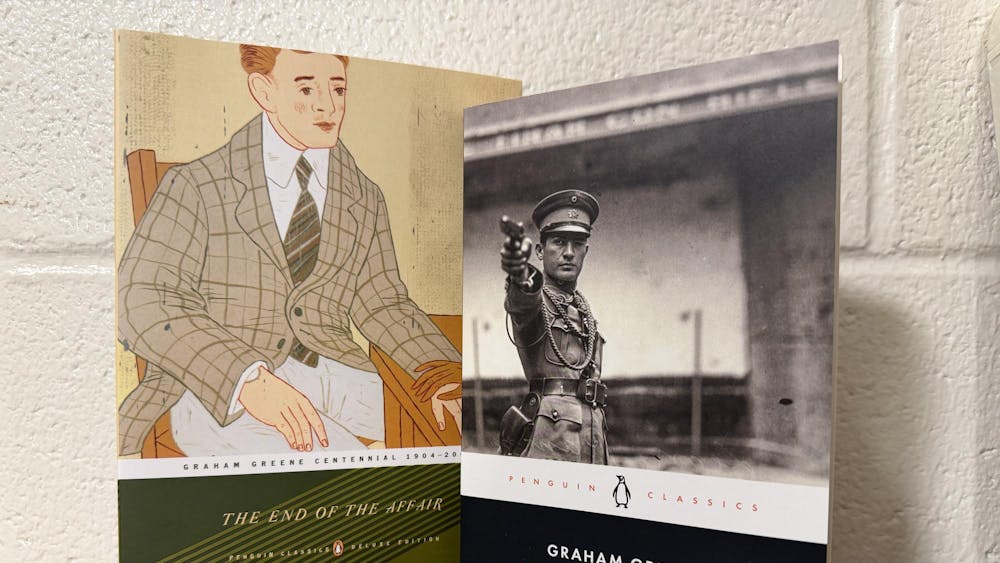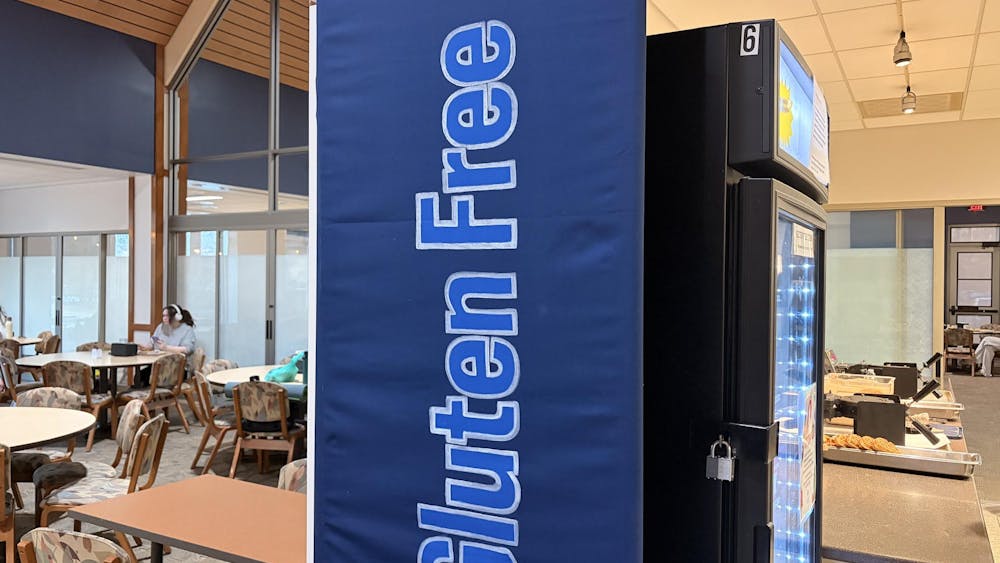Through the joint efforts of the Indiana Department of Health, St. Joseph County Health Department, Notre Dame and many volunteers, 5,760 vaccines were administered at the two-day mass vaccination clinic in Compton Family Ice Arena on Friday and Saturday.
The effort was part of a statewide movement to accelerate vaccine rollout. Two similar clinics were held at the Indiana Motor Speedway and Ivy Tech Community College in the weeks leading up to the Notre Dame clinic.
Those who received a free one-shot Johnson & Johnson vaccine on Friday or Saturday were required to pre-register in order to verify their eligibility and expedite the vaccine administration process, Mark Fox, deputy health officer for St. Joseph County, said.
The mass clinic came together with the help of medical professionals who administered the shot, the National Guard who managed logistical concerns, Notre Dame officials who helped control traffic and parking, city and county police forces who directed traffic on roads surrounding campus and volunteers who served as translators for Spanish-speaking residents receiving the vaccine.
Sue Ryan, Notre Dame director of media relations, said the state of Indiana played a larger role in organizing the clinic than the University.
“This is [the state’s] clinic,” she said, “We’re just offering our space to host the event.”
The state was in charge of most of the clinic planning, including setting up the tents and hiring the medical professionals, but Notre Dame provided important support with traffic and volunteer interpreters, Fox said.
Fox also said Notre Dame’s proven record of traffic and parking management made it an ideal location for the state to host a mass clinic.
The state developed a carefully detailed plan for an outdoor drive-thru clinic that ensured the vaccine distribution operated efficiently, Fox said. One of the steps taken to expedite the process was the streamlined pre-registration.
“Most times the registration process is what slows down vaccine clinics,” Fox said. “Having it pre-registered improves that.”
According to volunteers who observed the event on Friday and Saturday — including Nydia Morales-Soto, who worked at the clinic Saturday — the outdoor, drive-thru clinic operated in four steps.
First, vaccine registrants drove up to the initial check-in, where they would have to prove their Indiana residency. Second, another check-in process in a new area further verified the appointment registration.
Third, approved registrants would drive to another area where they would receive a vaccine without exiting their car. Finally, in the fourth step, vaccinated residents would move to another new area for 15 minutes to be monitored for any adverse effects before leaving the clinic.
Compared to current vaccine efforts in St. Joseph’s county, Fox said the streamlined process at the Notre Dame mass clinic will have a significant impact on rollout.
“It’s essentially 240 doses per hour, for 12 hours a day. By comparison, the biggest vaccine site in the county … is doing about 1,100 doses a day,” Fox said. “So this is a week’s worth of vaccination in two days.”
Fox also said the one dose of the Johnson & Johnson vaccine expedites the vaccine rollout process even more, essentially doubling the impact compared to the two-dose vaccines.
According to a report published March 18 by St. Joseph County Department of Health, near 75% of county residents over the age of 60 have received at least a first dose of the vaccine and more than 25% of the total county population have received at least one dose.
Fox said he expects these numbers will continue to increase steadily with an added boost from the mass clinic.
Those who registered for the clinic included many Hispanic county residents, and volunteers from Notre Dame jumped at the opportunity to help this community by serving as interpreters.
“We expect there could be a significant Hispanic population coming,” Fox said. “So, we put out a call for volunteers for that and had an overwhelming response.”
One of the volunteers, Laura Coll Pizarro, a graduate student and teaching assistant in Iberian and Latin American Studies who calls Colombia her home, said the decision to volunteer was simple.
“I saw the email from the provost, and I just thought, I would like to give back to the community,” Coll Pizarro said. “It was very natural for me. I’m always trying to help.”
Coll Pizarro also said that she thought a lot about the will of the people she might help.
“If they’re there, if they made the registration to have the vaccine, it is because they are willing to do it,” she said. “If they’re willing to do it, I will be more than happy to help them.”
Coll Pizarro also said her background as a member of a low or middle-class family who left Colombia looking for a better future would help her relate to the vaccine registrants who might need a translator.
Nydia Morales-Soto, another volunteer translator and program director at the Eck Institute for Global Health, did not have to serve as an official interpreter during her Saturday shift; however, she said she did hold some conversations in Spanish to help registrants feel more comfortable.
Morales-Soto said she decided to volunteer as a way to give back to the community, especially since COVID-19 had a disproportionate impact on many minority groups.
“There is such a disproportionate effect on the Latinx community and, really, on Black and brown communities in general,” she said. “I felt that it was important for me to make sure that people knew vaccinations are available — that people knew that [vaccines] are safe.“
Morales-Soto said her personal background as a Puerto Rican and her professional background as a molecular biologist also motivated her to volunteer.
In addition, Morales-Soto said experiencing the clinic firsthand instilled hope in her.
“It’s kind of like a hopeful moment after everything we’ve been through,” Morales-Soto said. “This really was successful. People were just happy. So many people showed up and some of them were doing their happy dances.”
Editor's Note: A previous version of this report stated the number of vaccinated individuals as of Feb. 25, 2021, not March 18, 2021. The Observer regrets this error.
Mass clinic at Notre Dame administers more than 5,000 vaccines over two days
Courtesy of St. Joseph Health Department
The St. Joseph County Health Department updates the vaccine statistics every Friday.









